Mosul IS battle: Iraqi forces retake Badoush prison
- Published
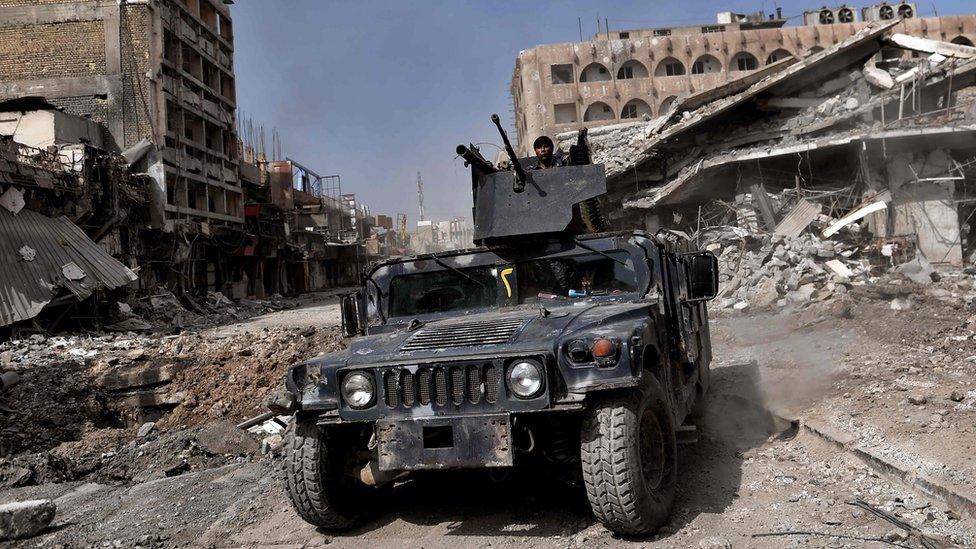
Iraqi army, police and special forces units are pushing into western Mosul
Iraqi forces have recaptured a prison north-west of Mosul that was reportedly the scene of a massacre by Islamic State militants, the military says.
Units of the army's 9th Armoured Division and allied militiamen raised the Iraqi flag over Badoush prison on Wednesday, a statement said.
It did not say whether they found anyone who was being detained by IS.
The Sunni extremist group is alleged to have killed up to 600 inmates there, most of them Shia Muslims, in 2014.
After the prison was seized that June, some 1,500 inmates were rounded up and transported by lorry to an isolated stretch of desert about 2km (1.2 miles) away, survivors told Human Rights Watch, external.
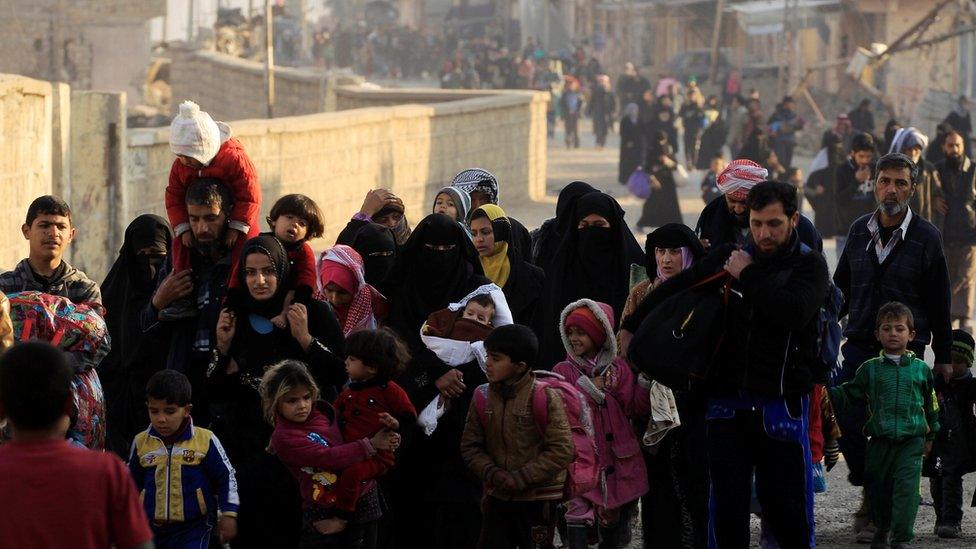
The fighting in the west has forced more than 51,000 people to flee their homes
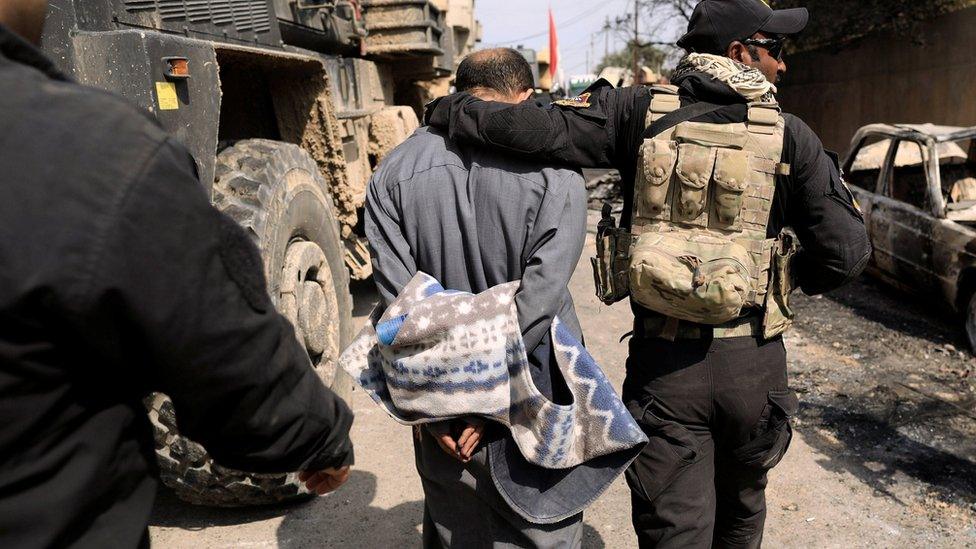
Those suspected of co-operating with so-called Islamic State are being detained
The gunmen separated the Shia inmates from the Sunnis and Christians and then marched them to a ravine, where they were forced to kneel along its edge.
The Shia inmates were shot in the head or back with assault rifles and automatic weapons, according to the survivors, who escaped by pretending to be dead or because they were shielded by the bodies of victims who fell on top of them.
It is not known whether the bodies were removed from the site, but the gunmen allegedly set fire to brush around the ravine and flames spread to the corpses.
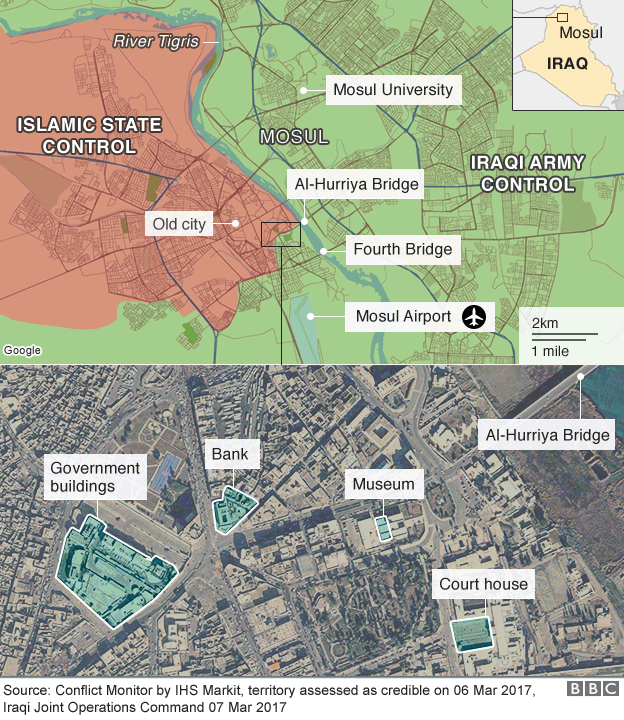
Iraq's government launched an operation to retake Mosul in October, and announced that the city's eastern side had been liberated in January.
Troops are now pushing into the more densely-populated west.
Earlier, the military announced that it had taken full control of the last major road leading west to the town of Tal Afar, another IS bastion.
Video shows the destruction in Mosul after Iraqi forces retook government buildings
Commanders also revealed they had repelled a major counter-attack early on Tuesday, hours after recapturing the Nineveh provincial government headquarters.
Troops have also retaken the central bank's office and the city's museum, where militants had filmed themselves destroying ancient artefacts in 2015.
Associated Press reporters granted access to the museum on Wednesday found exhibition halls housing piles of rubble and a basement filled with ash.
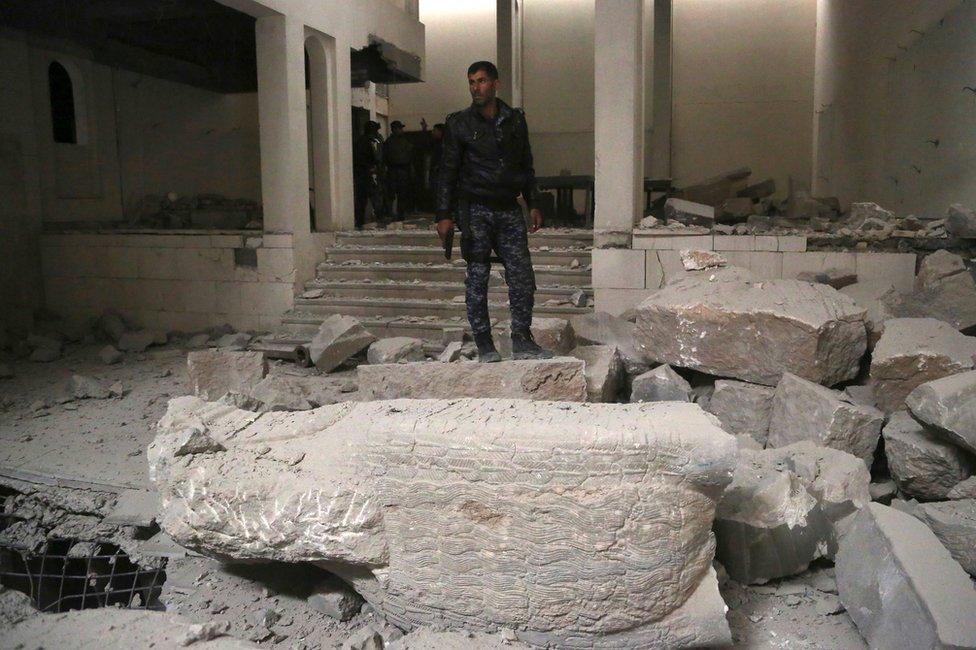
Iraqi federal police officers inspected damage to Mosul's museum on Wednesday
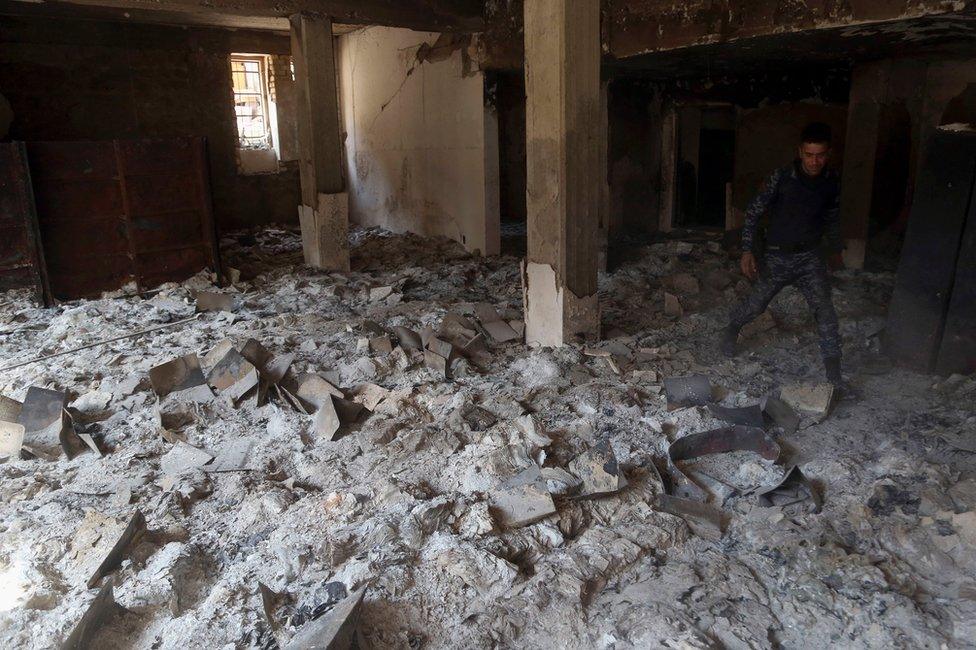
Piles of ash from ancient books and manuscripts set alight were found in the basement
Meanwhile, Prime Minister Haider al-Abadi said Iraq would continue to target militants in neighbouring countries, as it did last month by carrying out air strikes against IS positions in Syria.
Mr Abadi said he would "not hesitate to strike the positions of terrorists", but stressed that attacks would only take place if the countries gave their consent.